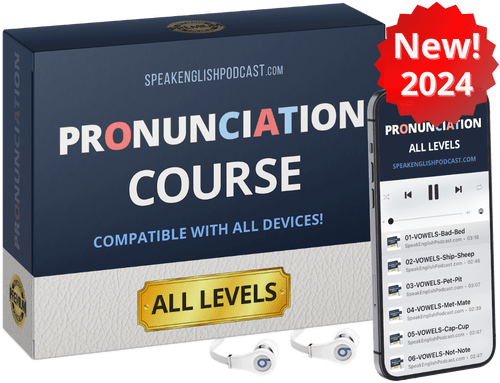Listen to a new episode of Speak English Now Podcast, your favorite material for practicing your spoken and heard English. You will also learn about lifestyle and culture, language, vocabulary, and how to improve your English more effectively.
Transcript:
Today, you will learn what else you can take or bring to the beach.
And with a mini-story, you will practice your English speaking. I will ask you many questions that you need to answer right away. It’s like having a conversation with another person in English.
Welcome to Speak English Now podcast, with your host, Georgiana. The podcast that will help you speak English fluently with no grammar and no textbooks.
Hi, everybody! I am Georgiana, your English teacher and founder of SpeakEnglishPodcast.com. My mission is to help you speak English fluently.
Before we start, visit my website SpeakEnglishPodcast.com/podcast to get the transcript for free.
Ok, let’s start!
Well, in the previous episode, we learned what things are useful when going to the beach:
- Swimsuit
- Towel
- Sunscreen
- Sunglasses
- Hat or cap
- Air mattress
Let’s learn some more today.
#1 Parasol
A parasol is a kind of big umbrella that is used a lot at the beach. It’s not meant to protect you from the rain but from the sun. Parasols have a pointed end that sticks into the sand. Sometimes, in windy weather, parasols blow away. So, it’s important to stick the parasol in well.
#2 Floater
No, a floater is not a person that floats. It’s like a donut with air in it that helps you float. Although the floater is usually used only by children, if you don’t know how to swim much, it is better to have a floater at your disposal. It’s better to be a little embarrassed than to drown.
#3 Beach ball
You inflate a beach ball by blowing and blowing. Of course, as it weighs very little, it will go many miles away if it’s windy. Parasols and beach balls are not very compatible with the wind.
#4 Folding beach chair
Although I’ve never used it, it sounds like a great idea. As the name suggests, a folding beach chair is one you can fold. When you put it away, you can change the shape to make it more compact. In addition, the short legs allow you to be closer to the sand when you sit on it. All that’s missing is a cool drink.
#5 Cooler
And speaking of cold drinks. The beach would not be the same without drinks and food. Therefore, you need a cooler. There are small coolers designed to be easy to carry with you.
That’s all for now. I hope you had a good time learning new English vocabulary. And if you go to the beach, don’t forget to take with you some of the things that I have suggested in the last couple of episodes.
(END OF THE EXTRACT).
Resources:
- Audio MP3 (right-click to save the audio)
- FULL-TEXT PDF (right-click to save the TEXT)
Recommended Material:



Hi teacher Georgiana lm really enjoying your lessons my English speaking is improving quickly I like the way you are explaining those lessons, but I need your advice how can I improve my writing i,thanks a lot your student Ali